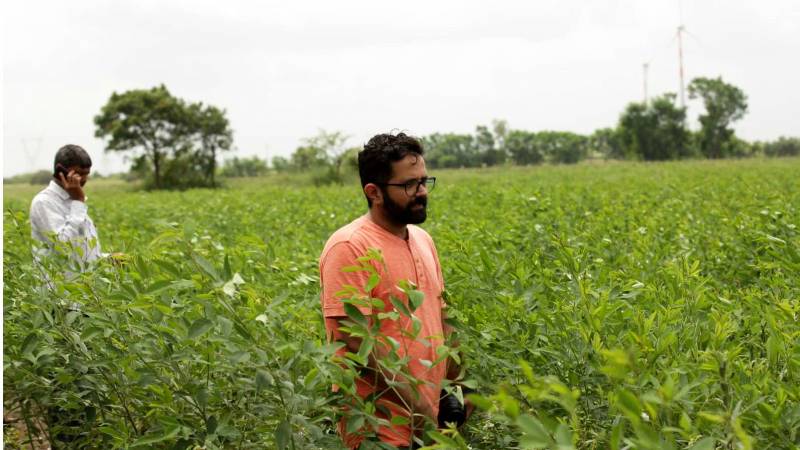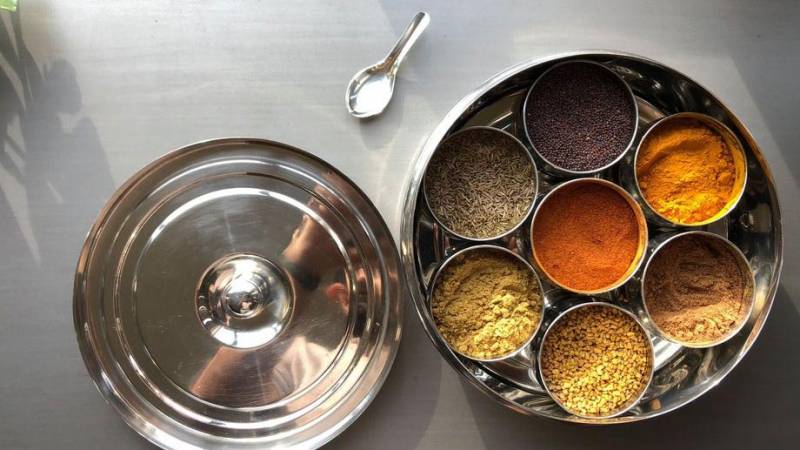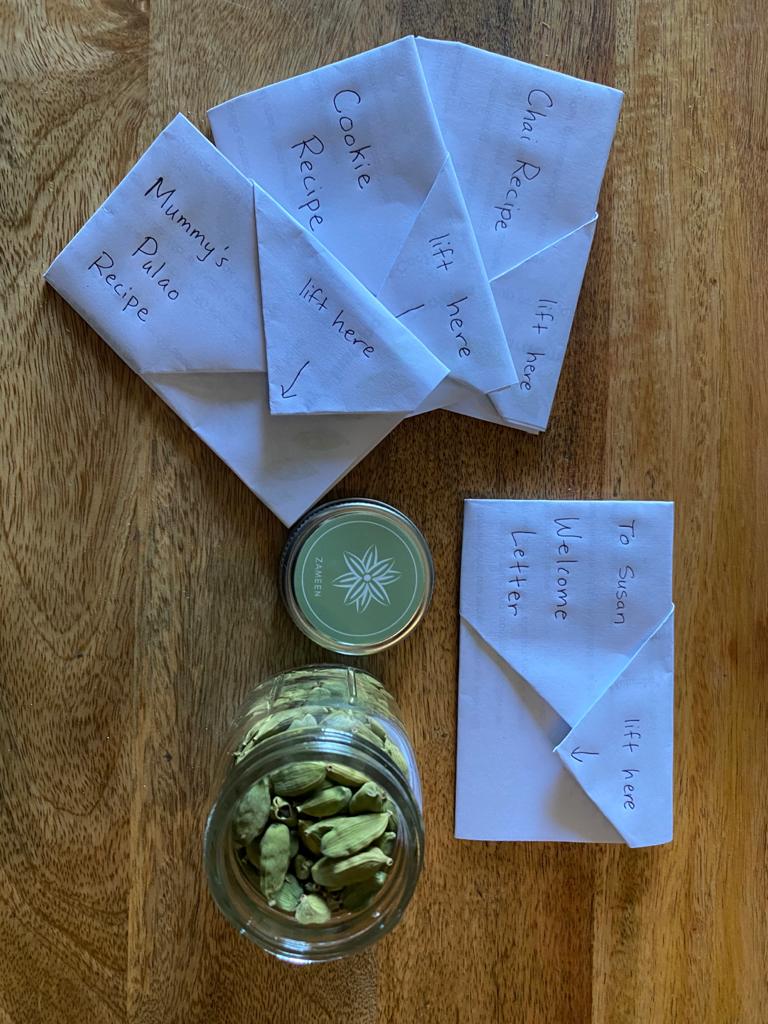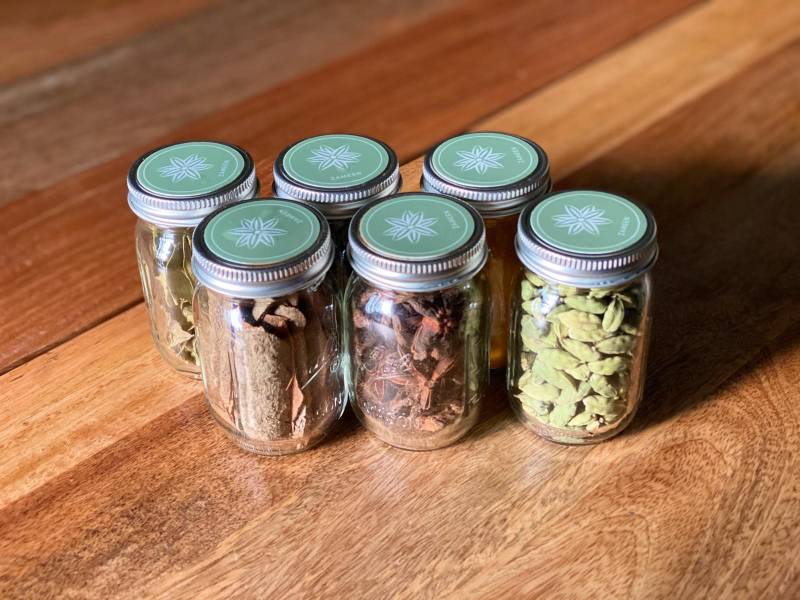At the beginning of September, Bay Area foodie Rushi Sanathra launched a subscription spice box, with a bit of a twist. Each box comes with a spice, a few recipes from him and his mom—often with a hand-written personalized note. The twist is not the mix of traditional Indian recipes and sustainable packaging, but the focus on the broader ecosystem. Zameen (meaning earth in Hindi) aims to expose the world to spices grown and harvested by small farmers. Zameen’s twist includes a focus on the farmer, the environment and social justice.
While the idea came to fruition this month, the seed was planted over ten years ago when Sanathra worked in a rural village in the state of Gujarat. Sanathra describes his initial foray into cooking as “Top Chef meets Survivor.” In 2009, he swapped his corporate job to volunteer in rural India. “The village, Dhedhuki, in the state of Gujarat, had few amenities. No public transit or grocery stores,” Sanathra wrote in a recent social media post.
“I’ve lived with farmers,” he said, but even ten years later the farmers he’s in touch with said they wanted to do organic farming. "But we're still looking for a market.” (full disclosure: Sanathra and I first met in India around this time.)

Sanathra, also known as Mr. Thaliwallah on Instagram — loosely translated to Mr. plate-guy, said his initial desire to start Zameen came from two main reasons: to bring traditional Indian recipes to a U.S. audience and supporting organic farmers in India. The concept to share spices has been roughly two years in the making. “Indian food traditions are being lost,” he said. Sending spices along with recipes is one way to revive those lost traditions.
He was working for Little Passports for the past few years, until he lost his job in January. Then, when the pandemic hit, he said he had no reason not to at least try. “In any other time, I would not have done this,” he said. While he has struggled with wanting everything to be perfect, he is adjusting to the idea that his vision won’t be perfect just yet, and he’s continually working to improve all aspects of the company.


